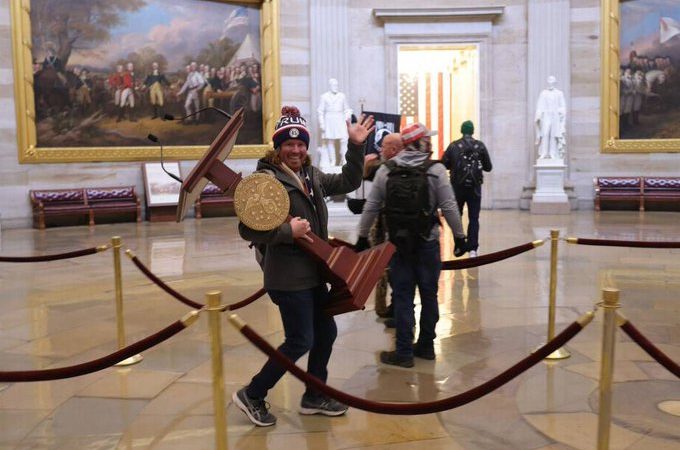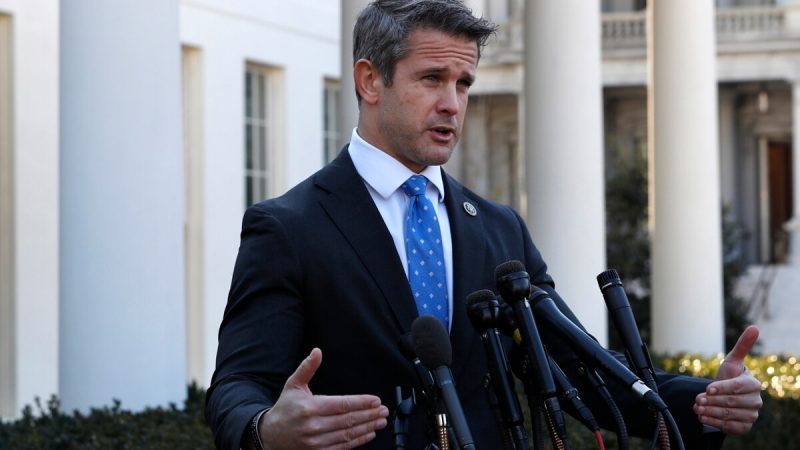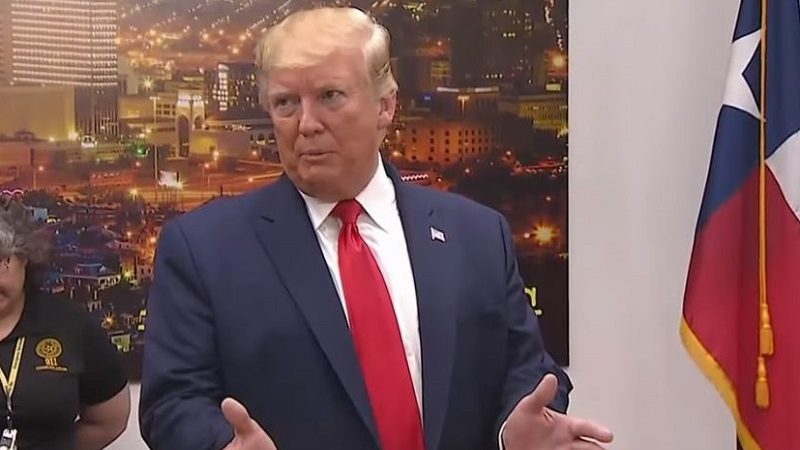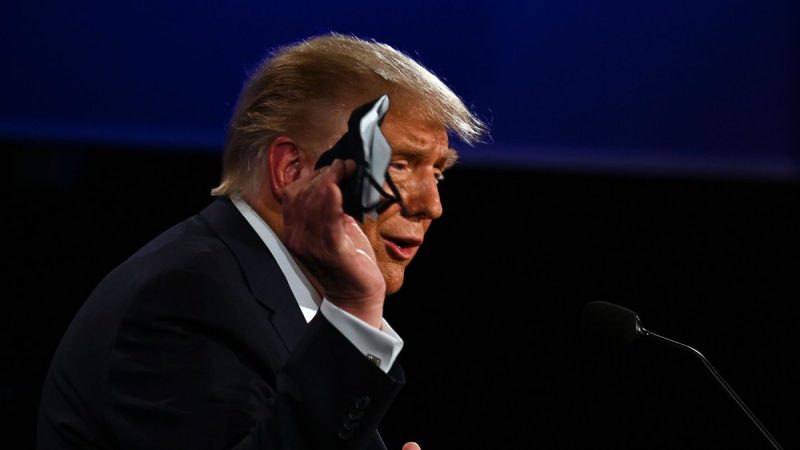Quagmires For Dummies: A Handy Guide To Just How Messed Up The Middle East Is
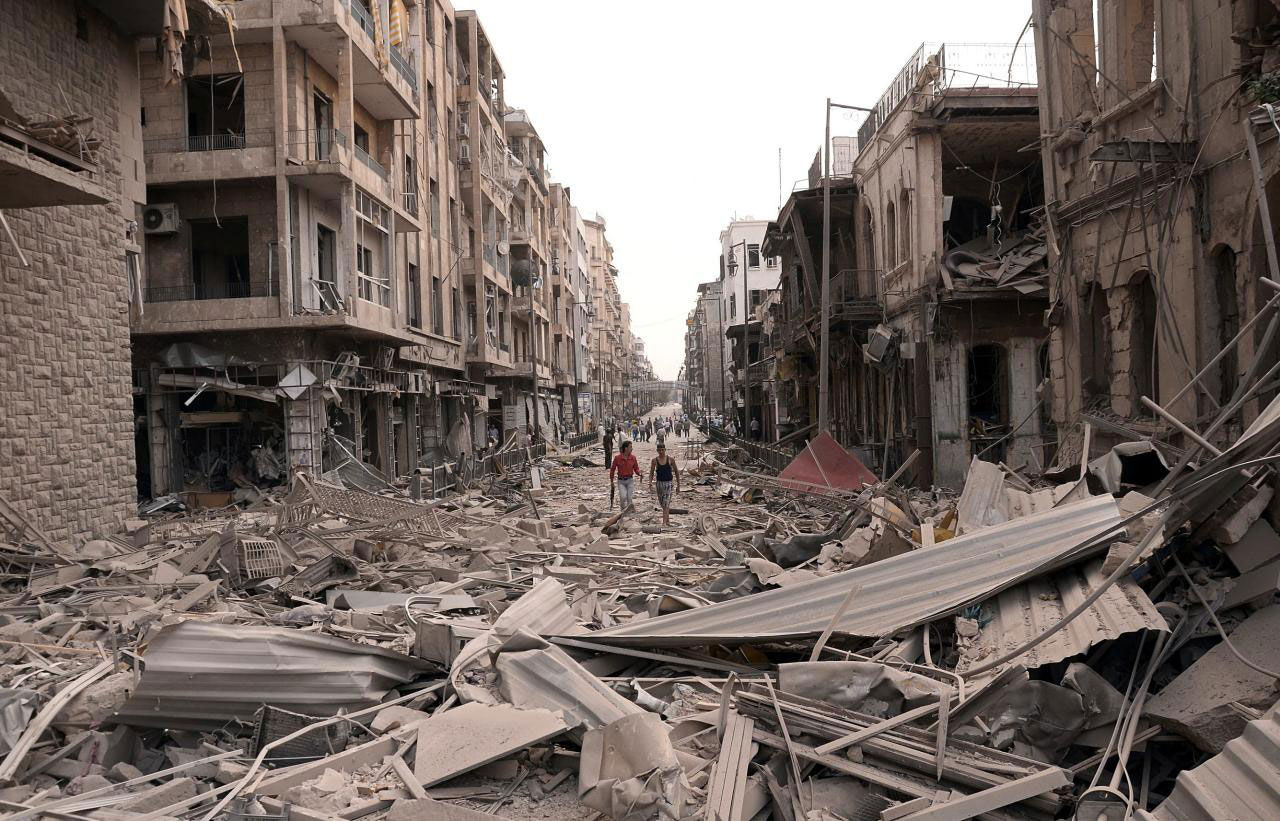
The Middle East is more a quagmire now than it has ever been. In case you have not been paying attention, let me explain where the pieces are set on the Middle Eastern chessboard:
Iran has disliked America for decades since the CIA orchestrated a coup d’état in 1953 to overthrow Mohammad Mossadegh, Iran’s democratically elected prime minister, in response to Mossadegh’s attempt to nationalize the Iranian oil industry, which had been under British control since 1913. The CIA bribed Iranian officials and incited revolts, and, ultimately, full executive power was given to Reza Shah Pahlavi’s western, anti-Soviet and secular monarchy.
Naturally, Iranians resented this foreign conspiracy and Western manipulation, and the Shah grew increasingly despotic against any political opposition, real or imagined, killing an inestimable number of Iranians. Following years of growing dissent, the 1979 Islamic Revolution deposed the Shah, and ultimately resulted in the theocratic republic headed by Supreme Leader Ali Khamenei.
However, despite decades of political differences, the Obama Administration is orchestrating a thaw in diplomatic relations while hashing out and implementing the Iranian nuclear deal. The economic sanctions placed on Iran after the revolution have worked to strangle Iran’s economy, and the nuclear deal aims to lift those sanctions in exchange for Iran halting its nuclear program.
Despite partisan, anti-Obama opposition from Republicans, the nuclear deal is, for lack of a better phrase, a big deal. Israel, America’s closest ally in the Middle East, has been warning that Iran is close to having a nuclear weapon for decades now, and Prime Minister Benjamin Netanyahu claimed back in 2012 that Iran was only “six months” away from a nuclear bomb. The Iranian nuclear deal stalls Iran’s enrichment of uranium for fifteen years, and the Republican alternative to scrap the deal and continue isolating Iran will likely only lead to war, or an Iranian bomb in months (according to Netanyahu, though this is a largely disputed claim) rather than years.
However, the nuclear deal is significant for Iran’s economy because Iran has a sizable middle class within a population of almost 80 million people, a majority of whom are educated and at least somewhat culturally secular. Iran is a giant international market itching to globalize its exports and open up to foreign investment, and economic integration is likely the best available deterrent to Iranian nuclear proliferation. Iran is yearning for an entrance onto the global stage, and crippling sanctions can always be imposed again if Iran reneges on its anti-nuclear commitments. And we know sanctions serve as an effective punishment because they are what brought Iran to the negotiating table to begin with.
The nuclear deal has obviously strained Israeli-American relations, but Netanyahu has proven to be a surprisingly impulsive politician. His increasingly hawkish politics may have won him a pyrrhic fourth coalitional term as prime minister, but Israel has become an international pariah state for its brutal apartheid-esque occupation of Palestine and it’s unnecessarily destructive military offensives in Gaza. Similarly, Netanyahu’s publicly aired discord with President Obama has done little to advance Israeli political interests, and the Congressional speech he delivered behind the Obama Administration’s back to Republicans backfired dramatically both here in America and in Israel.
American efforts to strike a deal between the UN Security Council (including the US, UK, China, Russia and France), Germany, the European Union and Iran reflect Israel’s self-sabotaged influence on Iranian negotiations. Israel could have been present at the negotiating table, but instead chose to oppose any Iranian communication at all. The US is continuing diplomacy anyway because Europe is increasingly apathetic toward Israel’s warmongering, and both Russia and China have announced that they will not participate in further negotiations if this deal falls through. Meanwhile, European corporations are salivating at the prospect of Iranian business.
Iran’s 80 million people simply cannot be isolated indefinitely, and there is nothing Republicans can do about it. Iran is inevitably going to be a key player in international politics from here on out, and the alternative to diplomacy is eventual war. A military option to try and cripple Iran would be an obviously catastrophic mistake because Iran is a regional power (which, ironically, the US helped arm while propping up the Shaw), and an Iranian war would be significantly more destructive, costly and lengthy than the Iraq War, which Americans largely regret. Abandoning diplomacy with Iran would be neoconservative hubris.
Meanwhile, the US and Iran are indirectly working together against ISIS in Iraq. The eastern portion of Shia Iraq is now essentially a vassal state within Iran’s sphere of growing Middle Eastern influence, and the US withdrawal from Iraq has effectively acted as a handoff to Iran. The Iraqi government and military, shaped and trained, respectively, by the US, are supported by Iran, and the US-Iranian negotiations behind the nuclear deal were certainly advanced by both countries’ aligned interests in Iraqi security and stability.
Unfortunately for America’s other Middle Eastern foreign policies, the nuclear deal considerably strains America’s relations with Sunni nations throughout the Middle East, collectively led by Saudi Arabia, the regional power opposite Shia Iran.
Saudi Arabia has been allied with the US for decades, and America helped develop Saudi Arabia into the military power it is today with arms deals and military aid packages. Sunni Saudi Arabia and Shia Iran, with their historical religious differences, oppose each other existentially, and the rivalry is growing significantly. Just last week, Saudi Arabia executed a prominent Shia cleric despite Iranian threats, which, in response, sparked many destructive Shia protests. Now several Sunni nations have closed Iranian embassies or restricted Iranian diplomacy.
This may be a step toward war between Sunni and Shia Islam, but in reality they are already at war. Saudi Arabia has been violently cracking down on the Arab Spring revolt of Houthi Shia Muslims in Yemen, which the Saudis claim Iran is instigating. Other proxy wars are playing out in Syria and Iraq, and even ISIS constitutes an aspect of this Shia-Sunni cold war.
Saudi Arabia and Sunni gulf states have been accused of doing little to combat ISIS, and the accusations are difficult to refute. ISIS happens to be Sunni as well, and even though ISIS condemns Sunni national governments as apostasies, Saudi Arabia certainly has more sympathy toward ISIS than Iran. The Wahhabi movement of fundamentalist Islam, which promotes extremist jihad against any perceived Islamic enemies and inspires ISIS’ ultraconservative caliphate, is based in Saudi Arabia, and the Saudi monarchy has been accused of bribing these Islamic fundamentalists to focus their terrorism efforts outside of Saudi Arabia. Remember that 15 of the 19 hijackers on 9/11 were Saudi citizens, and know that the full extent to which Saudi Arabia financed the hijackers is still classified information despite calls from members of Congress to publicize the apparently damning evidence.
In Iraq and Syria, it appears that Saudi Arabia is largely unconcerned with ISIS as long as the Islamic State is fighting Iranian interests in Iraq and Syria. With the US occupation in Iraq over, and ISIS in control of the Sunni regions, Iranian-backed efforts to expel the Islamic State are being perceived as a Shia invasion. Geographical maps aside, Iraq no longer exists as a functional country given that it has little sovereign control between its national borders, and the Shia and Sunni populations effectively make up independent states that arguably never should have been forced together into an artificial country in the first place.
Meanwhile, Kurds in northern Iraq have been defending themselves and may be founding a Kurdistan of sorts with Kurds in northern Syria. With the help of American air support the Kurds are holding their own against ISIS, and in recent months have mounted successful offensives. Because President Obama has largely refused to commit US troops on the ground in Syria and Iraq, these Kurdish militia groups are increasingly an integral part of American military strategy against ISIS. This arguably honors the Kurds’ hopes for independence, which complicates things greatly because Turkey, a crucial Middle Eastern ally of NATO and the US, is adamantly opposed to Kurdish independence.
The Kurds have long been discriminated against throughout the Middle East, and are in fact the largest stateless ethnic group in the world. Nowhere is this more true than in Turkey where Kurds make up about a fifth of the total population, and serve as an easy scapegoat in Turkey’s domestic politics. Turkey has been accused of perpetrating Kurdish cultural genocide throughout history alongside actual genocide.
While coalitional bombing missions are orchestrated against ISIS, Turkish airstrikes have instead been launched against Kurdish militia groups. Turkey fears Kurdish independence in northern Iraq and Syria because a Kurdish state would likely result in Kurdish secession or rebellion in south-eastern Turkey.
Hopefully, the ongoing Turkish assaults against the Kurdish militias do not foreshadow any political sidelining of the Kurds’ self-sovereignty ambitions when calm eventually returns to the Middle East. It is likely that the US would aim to glue Iraq’s pieces back together, albeit with a more liberal and centralized fashion of government in order to coax Iraq’s sectarian groups to cooperate with each other, but this strategy has already failed and resulted in the Sunni-Shia civil war preceding ISIS’ surge. A new Sunni-Shia truce and an externally imposed democratic government would likely fall apart again, and the Kurds, who are essentially independent right now, would certainly not agree to go back to being a sidelined minority group in the first place. And, for Iraq’s Sunnis to rejoin the current Shia government, Iran would have to back off and take its political influence elsewhere, something Iran is probably not interested in doing. So, without Kurdish or Sunni participation, Iraq will never become a centralized, independent nation. Maybe it’s time to give up the failed Iraqi colonial experiment.
If the situation in Iraq seems convoluted, in Syria things are even more complex. Syria has essentially become ground zero for this Middle Eastern quagmire, and has largely been reduced to rubble since the Syrian Civil War broke out in mid-2011. This is why the Syrian exodus of refugees has become such an international crisis: much of Syria has been wrecked.
President Bashar al-Assad and a fractious number of rebel militias are fighting a largely sectarian war, once again centered generally on Shia-Sunni lines. Making things more complicated, Russia and Iran have stepped in to the military-political fray in support of Assad, while the Obama Administration argues for Assad’s departure noting that the brutality with which he responded to the Syrian uprisings has forfeited the legitimacy of his presidency.
Thus, the Syrian Civil War, the invasion by ISIS, Kurdistan’s independence opportunity and the Iranian-Saudi rivalry are all individually separate ideological conflicts overlapping within Syria and Iraq. While Europe and the US are focusing on bombing ISIS and limiting the Islamic State’s influence, Assad and Russia are bombing Syrian rebel groups. Iran is assisting efforts on both fronts, and meanwhile Turkey is bombing Kurdish militias. The Sunni gulf states are doing less than they should be doing against ISIS in an attempt to block Iranian Shia influence. Quite the quagmire indeed.
However, the most intriguing dynamic of this Middle Eastern melee is how the US is on nearly everyone’s side: America is allied with the Sunni gulf states over oil interests and foreign policies, and separately with Turkey within NATO; is indirectly working with Iran in Iraq while agreeing to a nuclear deal alongside Russia; and is providing air support to the Kurds and moral support to the Syrian rebel groups even if initial attempts to provide weapons to them fell apart. The only player America does not support is Assad’s Syrian government, though there is little the US can do to oppose him.
John Kerry is now attempting to organize a Syrian election, but the notion that an election will result in stability and peace is unrealistic. The goal is probably to build a government with as much alleged legitimacy as possible, and then to support its efforts toward reconciliation. Rushed government may be better than no government, but it is unlikely that an election will stop the violence when so many players involved have conflicting motivations. For instance, in this democratic election, will ISIS members be able to vote or even elect the next Syrian president given that ISIS is geographically dominant throughout much of Syria?
Historically, most democracies’ first elections are particularly contested, and an election in the midst of a civil war is perhaps worthless when warlords all throughout the country would rather prolong the fighting if the alternative is lost geo-political power. And even if some faction did win the election, losing representative candidates do not typically view electoral winners as having much legitimacy. This is true even in politically stable America, where 13% of minority party Republicans suspect that President Obama is the Biblical anti-Christ, and another 13% are unsure. A Syrian election will likely only further enflame the civil war.
Like Iraq, though, Syria is effectively no longer the succinct country it used to be, and the world might not want to try and glue its pieces back together. I have written in the past that Iraq and Syria should be broken up with redrawn borders to reflect actual ethnic divisions rather than post-WWI colonial divisions, and I still can’t think of a better idea to return to peaceful self-sovereignty. Mandating a return to obsolete and war-torn borders will probably make eternal sectarian civil war inevitable.
And while all of this is going on, ISIS is still trying to set up their grand caliphate. While still holding on to expansive, and largely unpopulated territory, ISIS has not had much success since the summer, and the terrorist attack in Paris significantly amped up the number of bombs dropped daily on ISIS targets. Most of the political strategizing going on in the Middle East concerns what to do after ISIS is gone, and the Islamic State is more irrelevant than the Republican presidential candidates want American voters to believe. ISIS is not an existential threat to America, the West or Christianity, and, even if it can pull off an occasional terror attack in Europe, ISIS is heading toward the same diminished fate of al-Qaeda where we bomb them anytime they stick their heads out of hiding for too long.
Now you are acquainted with quagmire in the Middle East. 🙂
Image via CNN

